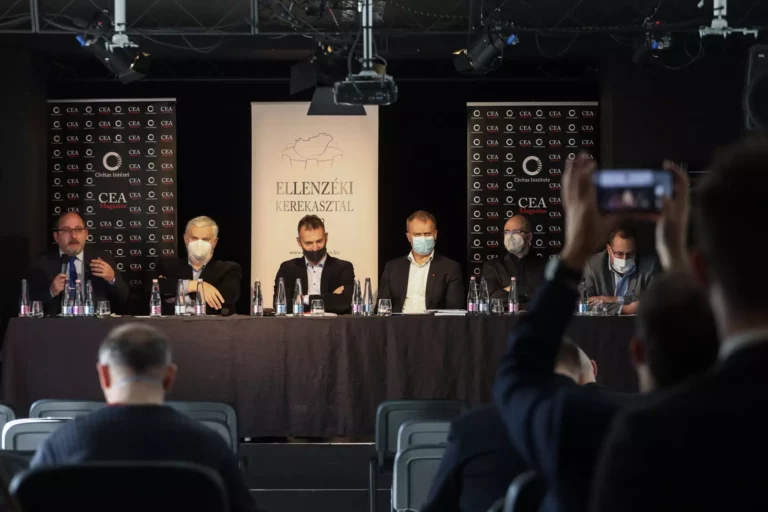Dialogue for Hungary (Párbeszéd Magyarországért)
Opposition: Orbán and his gang have failed both morally and politically
Hungary's opposition parties on Sunday called on the human resources ministry to conduct an internal investigation into arrests made in...
If the opposition wins, Hungary will have euro by 2027 – UPDATED

Opposition wants to say no on Budapest’s Chinese university on April 3

Opposition: govt change crucial for fighting climate change

Opposition referendum initiatives to be successful?

This is how the opposition wants to defeat Orbán

Opposition to introduce European minimum wage in Hungary

Opposition: Orbán’s economic and social policies have failed

Opposition: state practically being controlled by the Fidesz mafia!

Hungarian opposition a national security threat?

The opposition would authorise local governments to make mask-wearing compulsory

Opposition PM candidate: 2022 election ‘over the freedom of the Hungarian nation’

Opposition would restrict offshore business in Hungary

Fidesz communication head: Over 1 million Hungarians sign anti-Gyurcsány petition

Jobbik MEP Gyöngyösi: Hungarian opposition takes the initiative

Public transport to become free for children under 14 in Pest county?

Hungarian opposition primary hacked by China?

Opposition PM candidate Karácsony was not qualified to teach at Corvinus university?





 ZH
ZH IT
IT DE
DE HR
HR NL
NL FR
FR JA
JA RO
RO RU
RU ES
ES TR
TR
